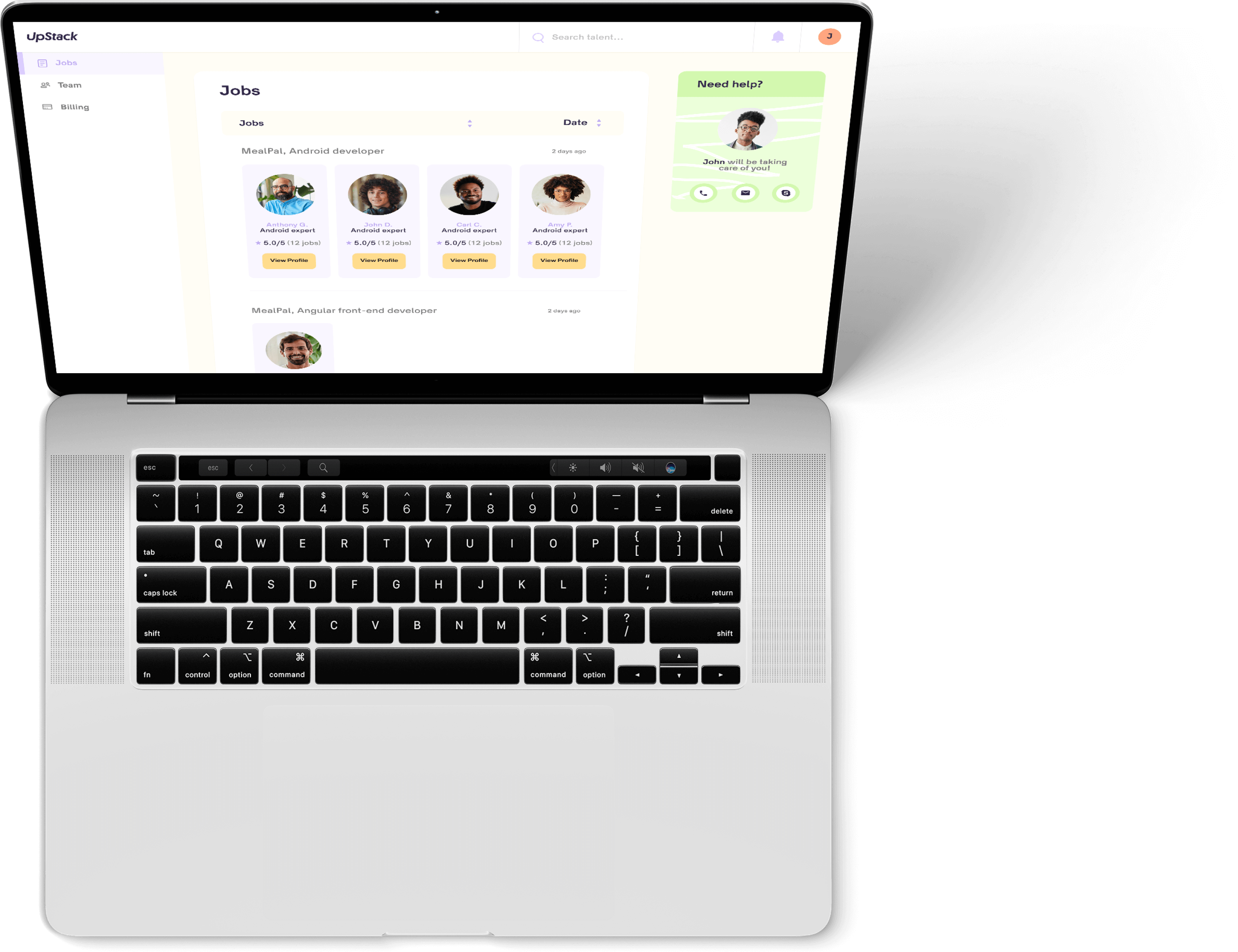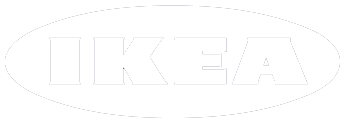


Schedule a Consultation and Hire a MyBatis Developer
Stella B.
Available
MyBatis Developer
-
Experienced Mybatis engineer with seamless project implementation
-
Loves guacamole & hates spoilers

-
Marcus T.
Available
MyBatis Engineer
-
Stacked portfolio of beautiful, functional websites
-
Known for his epic charcuterie & cheese boards

-
David M.
Available
MyBatis Developer
-
Mobile engineering guru with a knack for translating stakeholder needs
-
Would rather be diving Palau's Blue Corner

-
Top Mybatis Developers with UpStack
How to Hire the Perfect MyBatis Developer for Your Project
Every business wants to find the best programmer for their project, but it can be challenging to identify the right candidate. When it comes to hiring a MyBatis developer, you need to consider their skill set and experience to ensure they can deliver the project's requirements. MyBatis is an open-source persistence framework that helps developers develop database-centric applications. It is an effective tool to create database-driven websites and applications, so finding the perfect MyBatis developer is essential for any project. Here we will provide some tips and tricks to help you find the perfect MyBatis developer for your project.
What is MyBatis?
MyBatis is an open-source framework used to connect databases and applications. It allows developers to use SQL to create, read, update, and delete data from a database. It has a rich API for creating mapping metadata between Java classes and database tables. MyBatis was created in 2007 and is distributed under the Apache 2.0 license. MyBatis simplifies the process of creating database-driven applications by removing the need for most JDBC code. It also reduces the amount of code needed for CRUD functions compared to native JDBC. MyBatis is an ideal solution for creating a data-driven application and is often used with other MVC frameworks such as Spring and Hibernate.
Benefits of using MyBatis
- Easy integration: MyBatis is a lightweight library that is easy to integrate with other frameworks such as Spring and Hibernate. It can also be used with other ORMs such as JPA and JDBC.
- Reduced development effort: MyBatis reduces the amount of JDBC code needed to perform CRUD functions. It also reduces the amount of code needed to map the Java application with the database.
- Reduced operational effort: MyBatis reduces operational efforts by reducing the application code needed to perform CRUD functions. It also reduces operational effort needed to deploy and maintain the application.
- Reduced cost: MyBatis can reduce the cost of application development, operation, and maintenance. It can also reduce the cost of hiring resources such as developers and DBAs.
- Faster application development: MyBatis makes it easier for developers to perform CRUD operations against the database. It also makes it easier for developers to create a database mapping for the Java application. Improved database portability: MyBatis provides a database portability feature that enables developers to use SQL to create, read, update, and delete data from a database.
- Improved code readability: MyBatis provides a better code readability feature that allows developers to use SQL in their Java code. This feature enables developers to write database queries using a more readable and understandable syntax.
- Simplified database migration: MyBatis provides a simplified database migration feature that allows developers to easily migrate database tables to a new application version.
Qualifications and skills to look for in a MyBatis developer
There are a few qualifications and skills to look for in a MyBatis developer. Here are a few:
- Strong knowledge of SQL - A MyBatis developer should have a strong knowledge of SQL, especially when it comes to writing queries.
- Strong knowledge of SQLite - A MyBatis developer should have a strong knowledge of SQLite and how to create database tables and manage database schema. If your project uses other types of databases, then your developer should have a strong knowledge of those databases as well.
- Strong knowledge of Java - A MyBatis developer should have a strong knowledge of Java programming.
- Database design and modelling - A MyBatis developer should have some knowledge of database design and modelling. They should be able to create database tables and model data for those tables.
Writing a job description for a MyBatis developer
If you are hiring a MyBatis developer, you need to write a job description that attracts the best candidate for the position. When writing a job description, you should include the following information:
- Project details - Write a brief note about your project and the requirements.
- Job description - Write a job description that describes the position and what the candidate can expect.
- Salary and benefits - Write a few sentences about the salary and benefits that you are offering.
- Application details - Write a few sentences about the application and technology used for the project.
Interviewing potential MyBatis developers
There are a few good questions to ask potential MyBatis developers when you are interviewing them. Here are a few:
- What is your experience with SQL and SQLite?
- What is your experience with Java?
- What is your experience with relational databases?
- What is your experience with NoSQL databases?
- What is your experience with other SQL-based ORMs?
- What is your experience with other MVC frameworks?
- What is your experience with REST APIs?
- What is your experience with XML?
- What is your experience with SOAP?
- What is your experience with Web Services?
Testing MyBatis developer skills
There are a few ways to test a MyBatis developer’s skills. Here are a few:
- Code review - A code review is a good way to test a MyBatis developer’s skills. You can review code from open-source projects from your potential candidate.
- Project task - You can give your potential candidate a project task to complete. You can give them a small project that has the same requirements as your project.
- Online assessment - An online assessment is another way to test a MyBatis developer’s skills. You can use these assessments to find out what a candidate knows and if they are a good fit for your project. UpStack will help you out here and provide vetted candidates.
- Interview - You can also use the interview to test a MyBatis developer’s skills. You can ask questions about a candidate’s experience and how they would approach certain project tasks.
Negotiating salary and benefits
When hiring a MyBatis developer, you will need to negotiate salary and benefits. Here are a few tips for negotiating salary and benefits:
- Get salary data - Before you begin negotiating salary, get salary data so you know what you should be paying. You can use job boards and websites like payscale.com to get salary data.
- Know your company’s budget - Before you start negotiating salary, know your company’s budget so you have a starting point.
- Negotiate salary first - Before you start negotiating other benefits, start by negotiating salary.
- Offer a fair salary - Make sure you are offering a fair salary for your project.
- Negotiate for benefits - After you have negotiated a fair salary, you can start negotiating for benefits.
They trust Our Mybatis Developers
Why hire a Mybatis developer with UpStack
![Mybatis Developer and Programmer]()
Top Mybatis talent pre-vetted for a perfect fit.
Our 8-point assessment evaluation ensures that every senior Mybatis developer you interview exceeds expectations across technical, cultural, and language criteria.
![Mybatis Programmers Computer Icon]()
Hire reliable, passionate Mybatis developers.
From late-night sprints to jumping on a last-minute face-to-face, we ensure that your recruits are down to get the job done right.
![Mybatis Programmers High Five Icon]()
Risk-free 14-day trial.
Confidently onboard candidates with our no-questions-asked trial period. We'll walk you through the contract-to-hire process if and when you're ready to make it permanent with your new Mybatis engineer.
![Mybatis Computer Programmer Icon]()
Our Client Success Experts provide white-glove service.
Stay laser-focused on your business goals while our team of experts curates potential candidates and manages seamless programmer onboarding.
![Mybatis Developer Writing Notes Icon]()
Build your optimal team confidently, quickly.
UpStack handles everything including background and reference checks, legal issues, and more. Our platform streamlines billing, timesheets, and payment all in one easy-to-access place.
Schedule a call with a Client Success Expert to get starting hiring a Mybatis developer.
Start hiring Start hiring Start hiring
Hire from the Best.
Working with our Client Success Experts, we'll help you build the remote team of your dreams with top Mybatis talent from around the world.
Pre-vetted, reliable Mybatis developers are standing by.





Hiring Mybatis Developers | FAQs
How much does it cost to hire a Mybatis developer?
UpStack has a simple billing model where each Mybatis developer has a standard hourly rate averaging between $65-$75 per hour. Rates are based on skills, knowledge, and experience, and our developers are available mainly for full-time engagement (40 hours per week) and the occasional part-time opportunity (20 hours per week).
What is the process to find a Mybatis developer?
You'll connect with an UpStack Client Success Manager to determine your immediate needs. Our team uses a combination of AI and personal assessment to short-list candidates that match your job requirements. From there, you interview, select, and onboard the perfect developer, all within days of your initial call.
How does UpStack find its Mybatis developers?
UpStack's talent recruitment team connects with software developers around the globe every day. Each Mybatis programmer is vetted for technical, communication, and other soft skills necessary for a developer to successfully work with your team. Once vetted, the candidates are accepted into the UpStack developer community.
How is UpStack different from an agency or recruiter?
UpStack's community of available, pre-vetted engineering talent means minimizing roadblocks to scaling your team effectively, efficiently, and immediately. Our Client Success Experts work with you and your UpStack developer to ensure a smooth and seamless engagement.
Can I hire UpStack Mybatis developers directly?
Yes, you can hire UpStack Mybatis developers at any time, and with the same assurance of smoothly on boarding talent risk-free. First, we'd create a job opening on our portal. Then, we'd vet, interview, and match developers that meet your needs. If you're satisfied at the end of the 14-day trial period, at any time you can directly hire them.
Frequently Asked MyBatis Questions
What is the best MyBatis Generator?
MyBatis Generator is a code generator that helps users to quickly and easily generate code for their MyBatis projects. There are a few different options available, but ultimately the "best" one will depend on the specific needs and preferences of the user. Some popular options include MyBatis Generator (MBG), MyBatis Generator Enhanced (MBGE), and MyBatis Generator Maven Plugin (MBGMP). It's worth considering what features are important to you and trying out a few different options to see which one works best for your project.
Should I Use Hibernate or MyBatis?
Hibernate and MyBatis are both Java persistence frameworks, which are used to map Java objects to database tables and vice versa. Hibernate is an open-source object-relational mapping (ORM) tool that provides a framework for mapping an object-oriented domain model to a traditional relational database. It allows developers to work with data stored in relational databases using object-oriented concepts, without having to write SQL queries. MyBatis, on the other hand, is a SQL mapping framework that allows developers to work with databases using SQL, without having to write the SQL queries themselves. It provides a simple and easy-to-use interface for working with databases, and allows developers to use a domain-specific language (DSL) to interact with the database.
In general, both Hibernate and MyBatis can be used for the same purposes, but they differ in their approach and the way they are used. Hibernate is more of an ORM framework, while MyBatis is more of a SQL mapping framework. Some developers may prefer one over the other, depending on their specific needs and preferences.
How do I know if a developer is good at MyBatis?
To determine if a developer is good at MyBatis, you can ask them about their experience with the framework and evaluate their understanding of its key concepts and features. Some specific things you can ask about include:
- How long have they been using MyBatis?
- What projects have they used MyBatis on, and what were their responsibilities on those projects?
- Can they explain the key concepts of MyBatis, such as the SQL mapping files and the Java API?
- Can they demonstrate their knowledge of the MyBatis configuration and setup process?
- Can they discuss the advantages and disadvantages of using MyBatis compared to other Java persistence frameworks, such as Hibernate?
- Have they used any advanced features of MyBatis, such as caching or lazy loading?
In addition to asking questions, you can also ask the developer to provide examples of their previous work with MyBatis, such as code samples or a project they have worked on. This can help you evaluate their knowledge and skills in a more practical context.
What is MyBatis Plus?
MyBatis Plus is an enhanced version of MyBatis, a popular Java persistence framework. It provides additional features and functionality on top of the core MyBatis framework, such as improved performance, enhanced SQL support, and additional utilities and plugins. MyBatis Plus is designed to make it easier and faster for developers to work with MyBatis. It provides a number of useful features and enhancements that can help reduce the amount of code that developers need to write, and can make it easier to work with complex SQL queries and database operations.
Some of the key features of MyBatis Plus include:
- Support for automatic CRUD (create, read, update, delete) operations
- Improved SQL support, including support for advanced queries and table joins
- Built-in caching and lazy loading capabilities
- Support for Java 8 lambda expressions
- Enhanced pagination and data-table support
- Additional utility classes and plugins for common tasks, such as generating code and working with databases
Overall, MyBatis Plus can be a useful tool for developers who are using MyBatis and want to take advantage of its enhanced features and capabilities.







